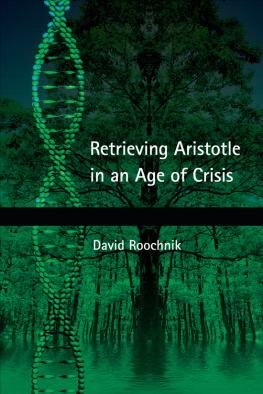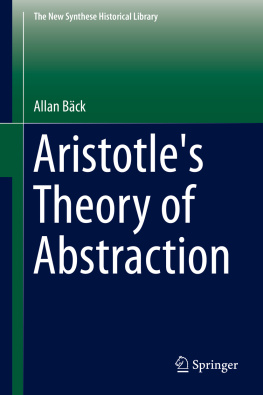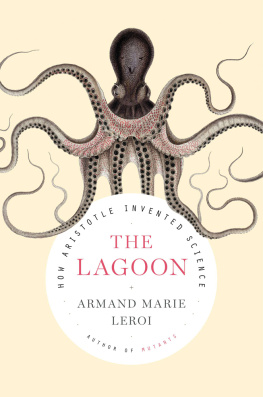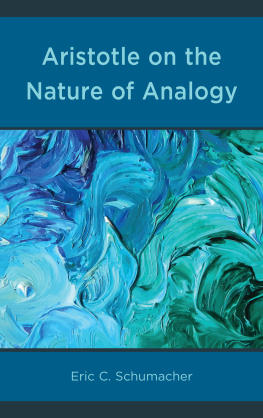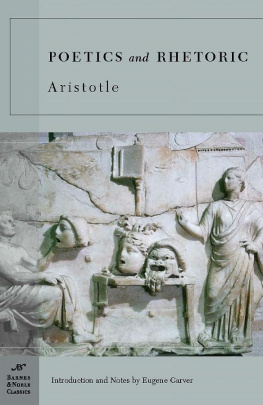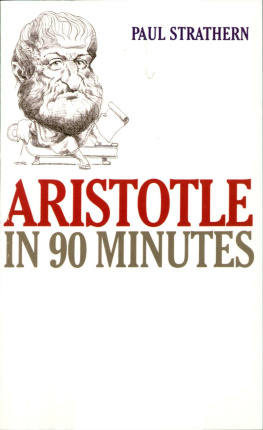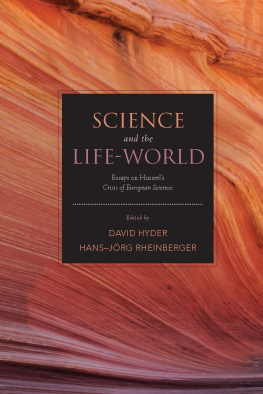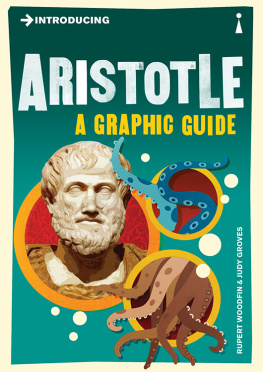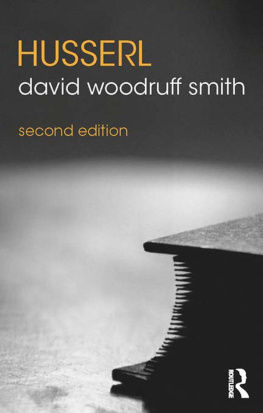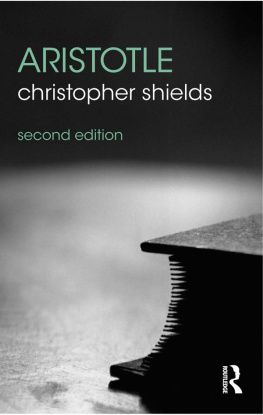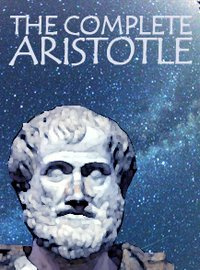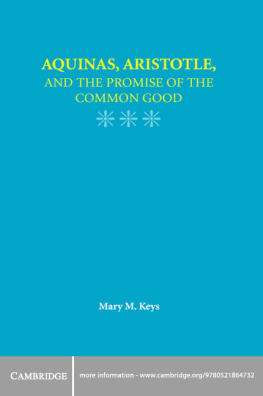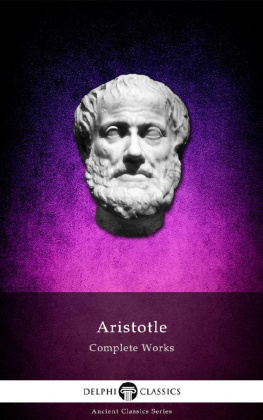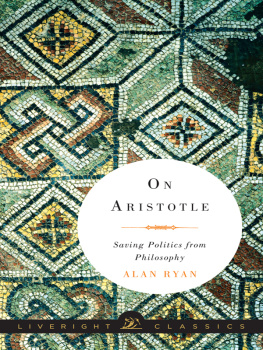SUNY series in Ancient Greek Philosophy

Anthony Preus, editor
Retrieving Aristotle in an Age of Crisis
DAVID ROOCHNIK

Cover image of the tree: Olaru Radian-Alexandru/Bigstockphoto.com
Cover image of the DNA: Scott R. Bowlin/Bigstockphoto.com
Published by State University of New York Press, Albany
2013 State University of New York
All rights reserved
Printed in the United States of America
No part of this book may be used or reproduced in any manner whatsoever without written permission. No part of this book may be stored in a retrieval system or transmitted in any form or by any means including electronic, electrostatic, magnetic tape, mechanical, photocopying, recording, or otherwise without the prior permission in writing of the publisher.
For information, contact State University of New York Press, Albany, NY
www.sunypress.edu
Production by Diane Ganeles
Marketing by Fran Keneston
Library of Congress Cataloging-in-Publication Data
Roochnik, David.
Retrieving Aristotle in an age of crisis / David Roochnik.
p. cm. (SUNY series in ancient Greek philosophy)
Includes bibliographical references (p. ) and index.
ISBN 978-1-4384-4518-2 (pbk. : alk. paper)
ISBN 978-1-4384-4519-9 (hardcover : alk. paper)
1. Aristotle. I. Title.
B485.R565 2012
185dc23
2012005001
10 9 8 7 6 5 4 3 2 1
Acknowledgments
I am grateful to several generations of Boston University students who allowed me to think through Aristotle's writings with them. In particular, I would like to thank Nir Eisikovits, who, as a member of a seminar that took place more than a decade ago, helped me to understand better what it is I find so profoundly attractive in the Philosopher's thought.
I am grateful to the Humanities Center of Boston University for granting me a semester of research leave during which I wrote the first draft of this book. I am fortunate to have had two fine colleagues and friends who also doubled as chair of my department during the years of preparation it took to write this book: Charles Griswold and Dan Dahlstrom.
The University of Chicago Press generously allowed me to reprint a portion of my article What is Theoria? Nicomachean Ethics, Book 10.78, which appeared in Classical Philology (2009 by the University of Chicago), as did the Review of Metaphysics for Aristotle's Defense of the Theoretical Life: Comments on Politics VII (2008).
Mr. I-Kai Jeng provided me with valuable editorial assistance and prepared the index for this book. Any mistakes that remain are surely my own.
A Note to the Reader
Like Aristotle, I begin many a sentence with we. This pronoun is meant to refer to the reader and myself. I use it on two occasions. First, I often discuss what I take to be experiences we all share. So, for example, we experience physical bodies as having three dimensions and time as being constituted by a past, present, and future. Second, sometimes we refers to us as residents of contemporary culture who hold certain views and general conceptions that have been taken for granted since the advent of the modern period (conceived as around 1600). So, for example, we know that the earth orbits the sun. My use of the pronoun may sometimes seem presumptuous. If so, the reader is invited to challenge it. Indeed, a goal of this book is precisely to make us wonder who we are.
The genius of Aristotle's thought is found in its comprehensiveness and its coherence. He thinks through the entire world from top (the stars) to bottom (the earth). As a result, no part of his work, no individual argument or theoretical bit, can be fully appreciated without an understanding of where it fits in the whole. For this reason, this book must, at least in summary fashion, address the entirety of his worldview. I urge readers to defer judgment on any particular item that is discussed until they are able to locate it within the context of the whole thought. As a guide to doing this, I will frequently point to later sections of the book by using the symbol (>). So, for example, to refer ahead to chapter 3, section 5, the reader will see (>). To offer reminders of what has already been discussed, I will use the symbol (<).
As Aristotle scholars will quickly realize, I sometimes devote a short section to a topic that would require a long book to be fully addressed. To compensate for such brevity, in the endnotes I often cite scholarly works that offer accounts far more elaborate than my own. I also point the reader to background material and occasionally discuss textual points that are particularly controversial. It is not necessary, however, to turn to these endnotes in order to follow the book's argument. The body of the text can stand on its own, and a knowledge of Aristotelian scholarship is not required to understand it.
Unless otherwise noted, translations of Aristotle are my own. Included in the Bibliography are the Greek texts that were used as well as English translations that I have consulted. I have consistently rendered the titles of Aristotle's works into English, rather than into Latin. So, for example, instead of De Caelo I opt for On the Heavens. All spellings of Greek words are phonetical. The Greek (ta) is rendered by and (omega) by . All lexical information comes from the Liddell-Scott Greek-English Lexicon. Quotations are typically followed by a parenthesis containing the standard pagination and line numbering of the 1831 edition of Immanuel Bekker.
This book builds on and borrows its title from an earlier work, Retrieving the Ancients: An Introduction to Greek Philosophy (Blackwell, 2004). Even though its chapter on Aristotle was but one of four, it became clear to me in writing it that the entire book was Aristotelian in spirit. The present book substantially elaborates much of what was asserted in of that work. As a result, there are a few pages of overlap between them, all of which are noted.
Prologue
While it took years of study to prepare to write this book, its immediate inspiration came from attending a performance of Tom Stoppard's play Arcadia. One scene in particular, the fifth in Act 2, convinced me to write it as I have (namely, as a polemic). It features Bernard, a scholar of romantic poetry who is doing some research on Lord Byron. In the ferocious speech that follows, he is responding to a comment made by Valentine, a biologist who is mathematically analyzing the fluctuations in the grouse population at his home, Sidley Park in England. He has just described Bernard's own research as trivial. Also on stage is Hannah, also a literary scholar but one with a greater commitment to historical accuracy than Bernard seems to have. They are antagonists throughout the play. Bernard wrote a scathing review of Hannah's best-selling biography of Lady Caroline Lamb and has just informed her that there was an error on the dust jacket of her book. (It contained a drawing of Byron and a woman falsely identified there as being Lamb.) In turn, Hannah sums up her views of Bernard's beloved romantic period by calling it a sham:
It's what happened to the Enlightenment, isn't it? A century of intellectual rigor turned in on itself. A mind in chaos suspected of genius ().
Finally, there is Chlo, Valentine's sister, who is enamored of Bernard.
Bernard: Oh, you're going to zap me with penicillin and pesticides. Spare me that and I'll spare you the bomb and aerosols. But don't confuse progress with perfectibility. A great poet is always timely. A great philosopher is an urgent need. There's no rush for Isaac Newton. We were quite happy with Aristotle's cosmos. Personally, I preferred it. Fifty-five crystal spheres geared to God's crankshaft is my idea of a satisfying universe. I can't think of anything more trivial than the speed of light. Quarks, quasarsbig bangs, black holeswho gives a shit? How did you people con us out of all that status? All that money? And why are you pleased with yourselves?
Next page
